



Business storytelling is not only stylistically but also structurally different. It’s just because of their subject matter that they get boxed into limiting categories. Here’s a list of 15 books released this year that defied such norms and cover an array of topics ranging from cryptocurrency to ‘climate capitalism’ to surveillance and despite being catalogued in a specific genre appeal to a wider readership.
Adman Madman: Unapologetically Prahlad (HarperCollins) by Prahlad Kakar with Rupangi Sharma
Renowned ad-filmmaker, as Shyam Benegal writes in the Foreword, “writes the way he talks,” which is full of humour, caveat, and insight. Though verbose at times (I guess everyone loves to talk about themselves), it’s still a great book that helps underline the fact that there’s richness in experience and one can get to meet and do the kind of eclectic works Kakar has done if one is willing to risk it all and be a madman.
Breaking the Mould: Reimagining India’s Economic Future (Penguin Books, an imprint of Penguin Random House) by Raghuram G. Rajan and Rohit Lamba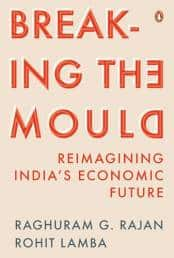
Though everyday, discussions on the economic growth of the country are often ill-informed. But one feels safe when economists like Rajan and Lamba as they not only cut to the chase but also deconstruct “economic growth” for laypersons by explaining what jargons of development actually mean and how it can be achieved—or as they note ‘reimagined’.
The Case for Nature: The Other Planetary Crisis (Allen Lane, an imprint of Penguin Books) by Siddarth Shrikanth
Oxford-educated investor Shrikanth presents a nuanced picture of what the climate crisis looks like. The book benefits from cases in point from a variety of landscapes and as he zooms in on the opportunities in the cracks of the crumbling capitalistic structure that blinds one to look beyond the now, one can see how the crises facing the planet can be rephrased and addressed.
The Company We Keep: Insights into Indian Corporate Culture (Viking, an imprint of Penguin Random House) by Divya Khanna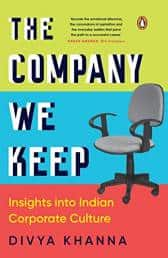
With all its limitations, Khanna’s book is still a worthy read, for besides assessing what corporate culture can help achieve, it’s also a book by a woman who relentlessly chased and got burnt out by an idea of what her best should look like in a male-dominated business environment. From microaggressions to work-life balance to nurturing relationships, it covers a variety of issues that should interest people managers and corporate leaders.
Climate Capitalism: Winning the Global Race to Zero Emissions (John Murray) by Akshat Rathi Climate Capitalism: Winning the Global Race to Zero Emissions (John Murray) by Akshat Rathi.
Climate Capitalism: Winning the Global Race to Zero Emissions (John Murray) by Akshat Rathi.For whatever it’s worth, this book is definitely a conversation starter for it documents several pioneering initiatives and business cases that help address the climate crisis facing our species. Additionally, in pointing out what mindfully and philanthropically investing for the future can and has helped achieve, Rathi translates the optimism he felt during his visit to several such places where these success stories materialised onto the page effectively.
The Equality Machine: Harnessing, Digital Technology for a Brighter, More Inclusive Future (PublicAffairs) by Orly Lobel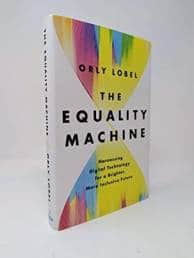
One is mostly suspicious of technology — and rightly so — but California-based founder and director of the Center for Employment and Labor Policy notes what role it can play in inclusion, ranging from “correcting historical exclusion,” addressing sexualisation and objectification to becoming creative in ways of granting agency and ensuring safety, making a good case for “digital coexistence with machines”.
Hidden Links: How Random Historical Events Shaped Our World (Ebury Press, an imprint of Penguin Random House) by Sangeeth Varghese and Zac Sangeeth
A thought leader and one of the world’s youngest historians, Varghese and Sangeeth, come together to make sense of random events and explain the history of a world they helped shape in this interesting book. Structured modularly for its easy consumption, this book has it all from migration to pandemic to climate change to “geopolitical undercurrents” in religious texts.
Meganets: How Digital Forces Beyond Our Control Commandeer Our Daily Lives and Inner Realities (PublicAffairs) by David B. Auerbach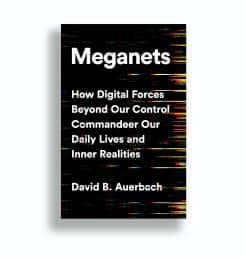
Our lives are extraordinarily impacted by digital forces, but forces, both per stipulated laws of physics and metaphorically, are directed by an agency. It’s this direction and its impact that Auerbach dissects in this masterfully written book that explores the role and dissonance between individual consumers, governments, and other agencies that has resulted in the chaos that we call “life” post-digitalisation.
No Birds of Passage: A History of Gujarati Muslim Business Communities 1800–1975 (Harvard University Press) by Michael O’Sullivan
O’Sullivan’s book not only looks at a specific window in the history of business but also narrates a tale of a particular community and “reveals the importance of kinship networks, private property, and religious obligation to their business endeavours” in this extremely researched and finely written book.
Nuts & Bolts: Seven Small Inventions that Changed the World (in a Big Way) (Hodder & Stoughton) by Roma Agrawal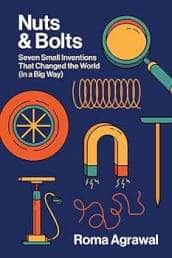
Like Hidden Links, Agrawal’s book hyper-focuses on what one may call “minor inventions” and tries to explain how they impacted the world “in a big way”. Nail, spring, wheel, lens, magnet, string, and pump are the seven innovations she cherry-picks and manages to tell such a fine story of how these simplistic elements made complex machines possible.
Number Go Up: Inside Crypto’s Wild Rise and Staggering Fall (Weidenfeld & Nicolson, an imprint of the Orion Publishing Group) by Zeke Faux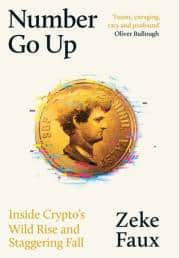
An incredible book on cryptocurrency, which has its own space in the realm of fiction and reality, Number Go Up penetrates deep and beyond what meets the eye. It’s rare for it names names and goes deep into investigating the ‘bubble waiting to be burst’ suspicion about crypto not on hearsay but material evidence.
Permacrisis: A Plan to Fix a Fractured World (Simon & Schuster) by Gordon Brown, Mohamed A. El-Erian, Michael Spence, with Reid Lidow
What Rajan and Lamba try to explore in relation to India, an array of writers who worked on Permacrisis manage to do what growth and economic management mean in relation to maintaining the global order at a time of multiple and internecine crises facing the world today.
Power and Progress: Our Thousand-Year Struggle Over Technology and Prosperity (Basic Books, an imprint of John Murray Press) by Daron Acemoglu and Simon Johnson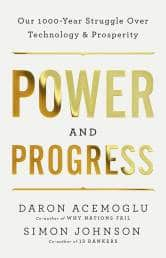
Acemoglu and Johnson’s book was on the 2023 Baillie Gifford Prize for Non-Fiction longlist. It looks closely at the journey of industrialisation punctuated by several changes over centuries that have helped shape the world the way it is but the interesting thread here is that it manages to underline and define how prosperity can be ensured for all.
The World of Sugar: How the Sweet Stuff Transformed Our Politics, Health, and Environment over 2,000 Years (The Belknap Press of Harvard University Press) by Ulbe Bosma
Bosma, a researcher and historian, had earlier written on sugar plantations (specifically in India and Indonesia), but with his latest, he tries to understand — in relation to sugar — what this commodity helped change in its immediate and far-fetched landscapes, for example, political scenarios, social setups, migrations, etc.
Your Face Belongs to Us: The Secretive Startup Dismantling Your Privacy (Simon & Schuster) by Kashmir Hill
Tech reporter at The New York Times, Hill meticulously writes about her investigation into Clearview AI — the “mysterious startup selling an app that could identify anyone using just a snapshot of their face” — and how leveraging of its proposition by governments and tech giants exposes a range of tremendous risks that one can’t even possibly imagine.
Discover the latest Business News, Sensex, and Nifty updates. Obtain Personal Finance insights, tax queries, and expert opinions on Moneycontrol or download the Moneycontrol App to stay updated!
Find the best of Al News in one place, specially curated for you every weekend.
Stay on top of the latest tech trends and biggest startup news.